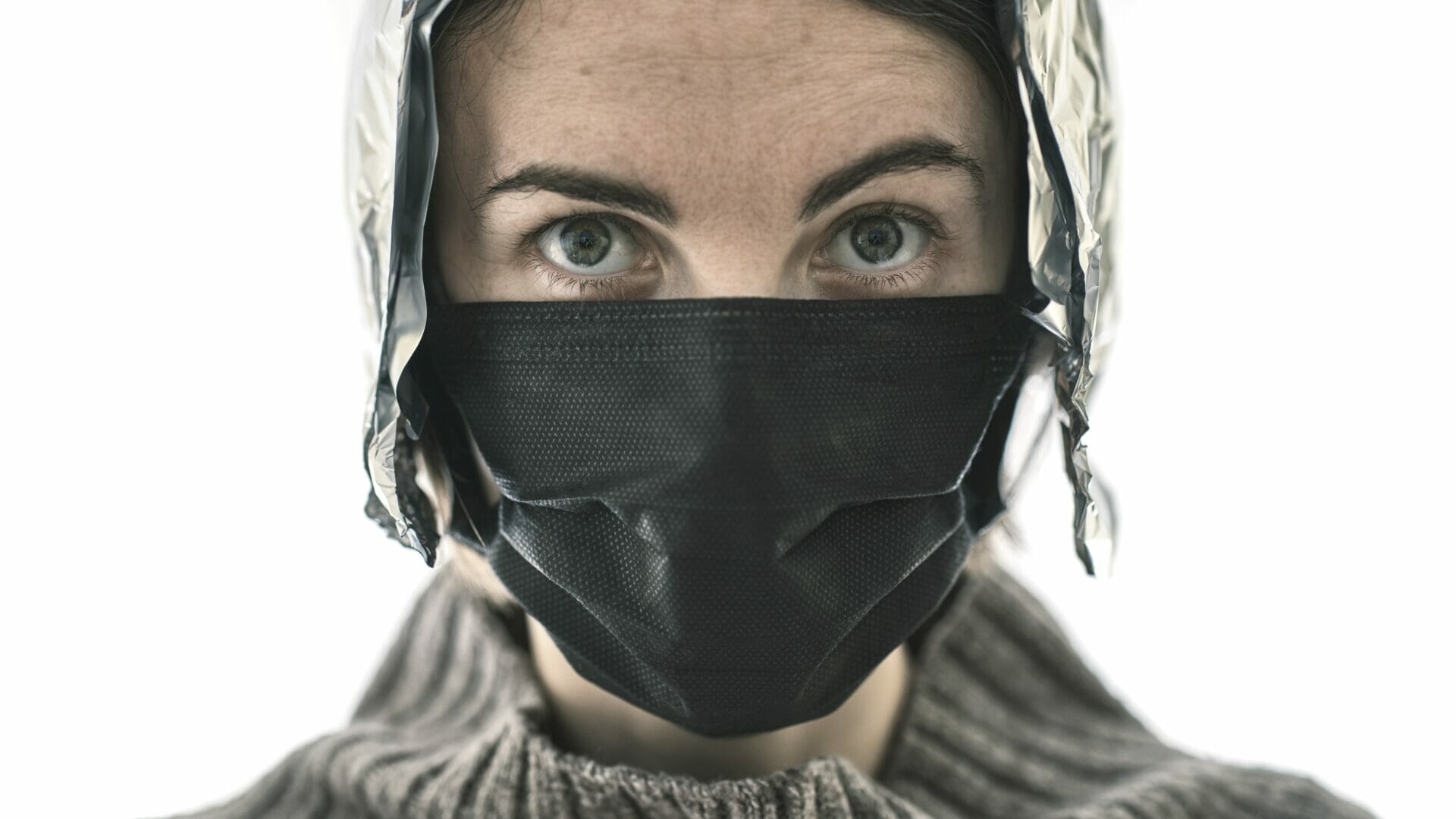The Good
It’s normal to feel stressed from time to time. Stress is the body’s response to demands placed upon it. But when stress becomes chronic, or when it’s accompanied by anxiety, it can have negative consequences for our physical and mental health. In this article, we’ll explore the good, the bad, and the stressful aspects of stress and anxiety.

What are some good things about stress?
It’s no secret that stress can take a toll on our physical and mental health. But what about the upside of stress? Turns out, there are some good things about the stress that we should all be aware of.
For one, stress can be a motivator. It can help us meet deadlines, perform well under pressure, and achieve our goals. A little bit of healthy stress can also help us stay alert and focused.
Stress can also lead to positive changes in our lives. It can motivate us to make healthy lifestyle changes, such as eating better and exercising more. Stress can also inspire us to pursue our dreams and make positive changes in our careers.
Of course, it’s important to manage stress in healthy ways. Too much stress can lead to major health problems, such as heart disease, anxiety, and depression. But there are plenty of healthy ways to cope with stress, such as exercise, relaxation techniques, and spending time with loved ones.
So next time you’re feeling stressed out, remember that it’s not all bad. Stress can actually be a good thing if we know how to manage it properly.

The Bad
We all know that stress can be bad for our health. But did you know that it can also lead to some pretty serious health problems?
When we’re stressed, our bodies go into fight-or-flight mode. This means that our hearts start pumping faster, our blood pressure rises, and our breathing becomes shallow. All of this puts a lot of strain on our bodies, and over time, it can take a toll.
If you’re constantly feeling stressed, it can lead to high blood pressure, heart disease, stroke, and even depression. So it’s important to find ways to manage your stress levels and keep them under control.
There are lots of different ways to do this, but some of the most effective methods include exercise, relaxation techniques like yoga or meditation, and spending time with friends and family.
So if you’re feeling stressed out, don’t ignore it. Find some ways to de-stress and relax. Your body will thank you for it!

What are some bad things about stress?
While a little bit of stress can be good for us, too much stress can have negative effects on our physical and mental health. Some of the ways that stress can negatively impact us include: · Weakened Immune System: When we are stressed, our bodies release a hormone called cortisol. This hormone can suppress the immune system, making us more susceptible to illness. · Increased inflammation: Chronic stress has been linked to increased inflammation in the body, which can lead to conditions like heart disease and arthritis. · Digestive problems: Stress can cause or worsen digestive issues like irritable bowel syndrome (IBS) and gastroesophageal reflux disease (GERD). · Sleep problems: People who are stressed often have trouble falling asleep or staying asleep. This can lead to fatigue and even depression. · Anxiety and depression: Chronic stress can exacerbate anxiety and depression, two conditions that are already very common.

The Stressful
The stress of everyday life can be overwhelming. It can feel like there’s just not enough time in the day to get everything done, and that can lead to a lot of anxiety. If you’re constantly feeling stressed, it’s important to find ways to manage that stress. Otherwise, it can lead to health problems like high blood pressure, heart disease, and obesity. There are a number of things you can do to manage stress. You can exercise, meditate, or spend time with friends and family. You can also try relaxation techniques like yoga or Tai Chi. If you find that your stress is manageable, you may also want to consider counselling or therapy. If you’re feeling overwhelmed by stress, don’t hesitate to reach out for help. There are plenty of resources available to help you cope with stress and live a happier, healthier life.

What are some stressful things about stress?
There are many things that can cause stress, and not all of them are bad. Some stressful things are simply unavoidable, such as deadlines at work or caring for a sick family member. However, there are also some things that we can do to manage our stress levels and keep them from getting out of control. One of the most stressful things about stress is that it can be cumulative. That means that if we have a lot of different stressors in our lives, they can start to add up and make each other worse. This can create a vicious cycle, where the more stressed we feel, the less able we are to cope with each individual stressor. Another stressful thing about stress is that it can have physical effects on our bodies. When we’re stressed, our heart rate and blood pressure increase, and we may start to feel tense and anxious. This can lead to problems like headaches, stomach pains, and difficulty sleeping. Finally, stress can also take a toll on our mental health. If we’re constantly feeling stressed, we may start to feel depressed or anxious. We may also find it hard to concentrate or make decisions. While stress is a normal part of life, it’s important to remember that we can take steps to manage it. We can’t always avoid stressful situations, but we can learn how to deal with them in a healthy way. If you’re feeling overwhelmed by stress, talk to your doctor or mental health professional. They can help you figure out what’s causing your stress and how to best deal with it.
What is stress?
Stress is the body’s response to any demand, whether it be from the environment or from within the body itself. The stress response is a complex series of changes that take place in order to help the body deal with the demand. These changes can be physical, psychological, or both.
The stress response begins with a signal from the brain that alerts the rest of the body that a demand has been placed on it. This triggers a release of hormones, such as adrenaline and cortisol, which prepare the body for action. The physical changes that occur during the stress response include an increase in heart rate, blood pressure, and respiration, as well as a release of sugar and fat into the bloodstream. The psychological changes that take place during the stress response include an increase in vigilance and arousal.
The stress response is beneficial in situations where it helps the body deal with a threat or challenge. However, when the stress response is constantly triggered by everyday demands, it can lead to problems such as anxiety, sleep disturbance, and even heart disease.

Is it stress or anxiety?
*For many people, stress and anxiety are interchangeable. But while they may share some symptoms, they are actually two very different things.* **Stress** is a response to a specific situation or event, whereas anxiety is a more general feeling of unease or worry. There are a number of ways to tell the difference between **stress** and **anxiety**. One is the length of time you feel the symptoms. If you only feel them in specific situations (such as when you’re giving a presentation at work), it’s likely to be **stress**. If you feel them all the time, even when there’s nothing specific going on, it’s more likely to be **anxiety**. Another way to tell the difference is by looking at your thoughts and behaviours. If you’re worried about something specific (such as an upcoming deadline), it’s likely to be **stress**. If you’re not sure what you’re worried about, or your worries seem excessive or irrational, it may be **anxiety**. If you’re not sure whether it’s **stress** or **anxiety**, it’s worth talking to your GP. They can help you understand what might be causing your symptoms and provide support and advice on how to manage them.

Stress vs. Anxiety
It’s normal to feel stressed out from time to time. Stress is a response to pressure, and it can be physical, mental, or emotional. Pressure can come from work, school, relationships, or other life events.
The good news is that stress is manageable. It’s important to find healthy ways to cope with stress so it doesn’t turn into anxiety.
Anxiety is different from stress. Anxiety is a chronic condition that can be mild, moderate, or severe. People with anxiety often feel out of control and have intense worries and fears. They may avoid people or places that trigger their anxiety.
If you’re struggling to manage your stress, talk to your doctor or a mental health professional. They can help you develop healthy coping mechanisms and create a plan to manage your stressors.
Coping With Stress and Anxiety
We all experience stress and anxiety at some point in our lives. It’s a normal part of life. But sometimes, the stress and anxiety can become too much. When that happens, it can start to interfere with your life. You might have trouble sleeping, concentrating, or just enjoying life.
If you’re feeling overwhelmed by stress and anxiety, there are things you can do to help cope with it. First, try to identify what’s causing your stress and anxiety. Once you know what’s triggering it, you can start to work on a plan to deal with it.
There are a few different ways to deal with stress and anxiety. Some people find that exercise helps them to release tension and feel better. Others find that relaxation techniques like yoga or meditation help them to calm down. There are also many helpful books and articles on the subject.
If you’re struggling to cope with stress and anxiety on your own, don’t be afraid to reach out for help. Talk to your doctor or a therapist. They can help you develop a plan to deal with your stress and anxiety.
Recognize When You Need More Help
If you are struggling to cope with stress on your own, it is important to reach out for help. There are a number of resources available to you, including support groups, counselling, and therapy. It is important to find a resource that feels right for you, as this will increase the likelihood that you will stick with it. If you are not sure where to start, consider speaking to your doctor or a trusted friend or family member.
Frequently Asked Questions
What are some common causes of stress?
Some common causes of stress are work, school, relationships, and money.
What are some common symptoms of stress?
There are many common symptoms of stress, including feeling overwhelmed, feeling anxious or depressed, having trouble sleeping, feeling irritable or angry, having trouble concentrating, overeating or undereating, and using alcohol or drugs to cope.
How can you manage stress in your life?
There are a number of ways to manage stress in your life. Some people find that exercise is a good way to relieve stress, while others find that relaxation techniques such as yoga or meditation are helpful. Some people find that journaling or talking to a trusted friend or family member can also be helpful in managing stress. Ultimately, it is important to find what works best for you and to find healthy coping mechanisms that work for you in order to manage stress in your life.
What are some tips for reducing stress?
There are a number of ways to reduce stress, and what works for one person may not work for another. However, some general tips for reducing stress include exercise, relaxation techniques (such as yoga or meditation), eating a healthy diet, getting enough sleep, and spending time with loved ones.
What are some lifestyle changes that can help reduce stress?
Some lifestyle changes that can help reduce stress are eating a healthy diet, getting regular exercise, getting enough sleep, and managing your time wisely.
What are some foods that help reduce stress?
Some foods that help reduce stress are bananas, oatmeal, dark chocolate, green tea, and avocados.
